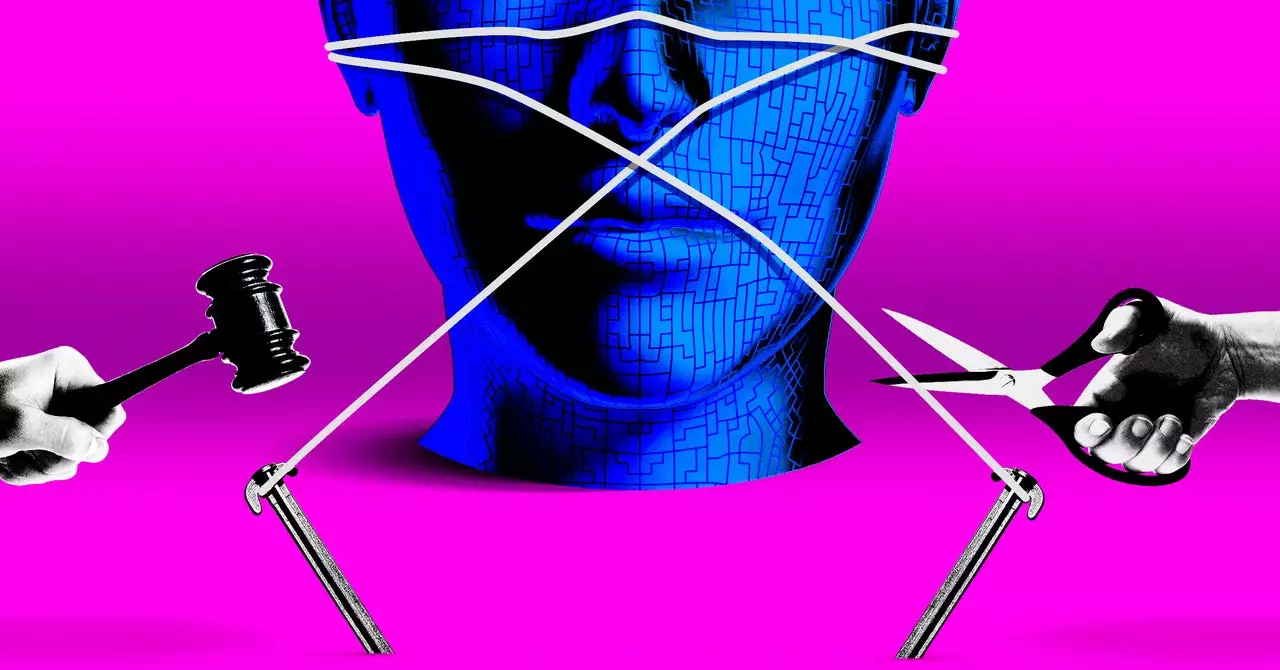At a recent press dinner hosted by Box, a surprising conversation arose when CEO Aaron Levie expressed his reluctance towards government regulation on AI technologies. Levie made it clear that his main goal was to minimize government interference as much as possible. He even joked about being the one to single-handedly stop the government in its tracks. While Levie acknowledged the importance of regulating clear AI abuses like deepfakes, he deemed it premature to consider more extensive measures such as submitting language models to government-approved AI authorities or scanning chatbots for biases or hacking capabilities. Levie criticized Europe’s approach to AI regulation, stating that their preemptive regulations did not foster innovation as intended.
Levie’s stance contradicts the prevalent position held by many technology leaders in Silicon Valley, including Sam Altman, who advocate for more regulations on AI. However, Levie pointed out a significant lack of consensus within the tech industry regarding the specifics of such regulations. He emphasized that the industry as a whole is not entirely sure about what they are asking for when it comes to AI regulations. Levie expressed doubts about the feasibility of a comprehensive AI regulatory bill in the US, stating that the country lacks the coordination necessary for such legislation.
During a panel discussion at TechNet Day, industry leaders like Google’s Kent Walker and Michael Kratsios discussed the importance of protecting US leadership in AI innovation. While recognizing the potential risks associated with AI technologies, they argued that existing laws were sufficient to address any concerns. Walker raised concerns about individual states developing their own AI legislation, highlighting the lack of a unified approach at the federal level. The panelists emphasized the need for the government to focus on maintaining US competitiveness in the AI field rather than imposing restrictive regulations.
In the midst of these debates, the US Congress has seen several AI-related bills introduced, some more meaningful than others. Representative Adam Schiff introduced the Generative AI Copyright Disclosure Act of 2024, which requires large language models to disclose detailed summaries of any copyrighted works used in their training data sets. However, the ambiguity of what constitutes a “sufficiently detailed” summary raises questions about the practicality of such regulations. Schiff’s bill draws inspiration from similar measures in the EU’s AI legislation, indicating a global trend towards increased regulatory scrutiny.
Overall, the divergent opinions within Silicon Valley regarding AI regulation highlight the complex challenges associated with governing rapidly evolving technologies. While some industry leaders advocate for more stringent regulations to prevent potential risks, others like Aaron Levie stress the importance of maintaining a balance between innovation and oversight. As debates continue and legislative efforts evolve, finding a middle ground that promotes innovation while addressing AI-related concerns remains a pressing issue for policymakers and industry stakeholders alike.


Leave a Reply
You must be logged in to post a comment.